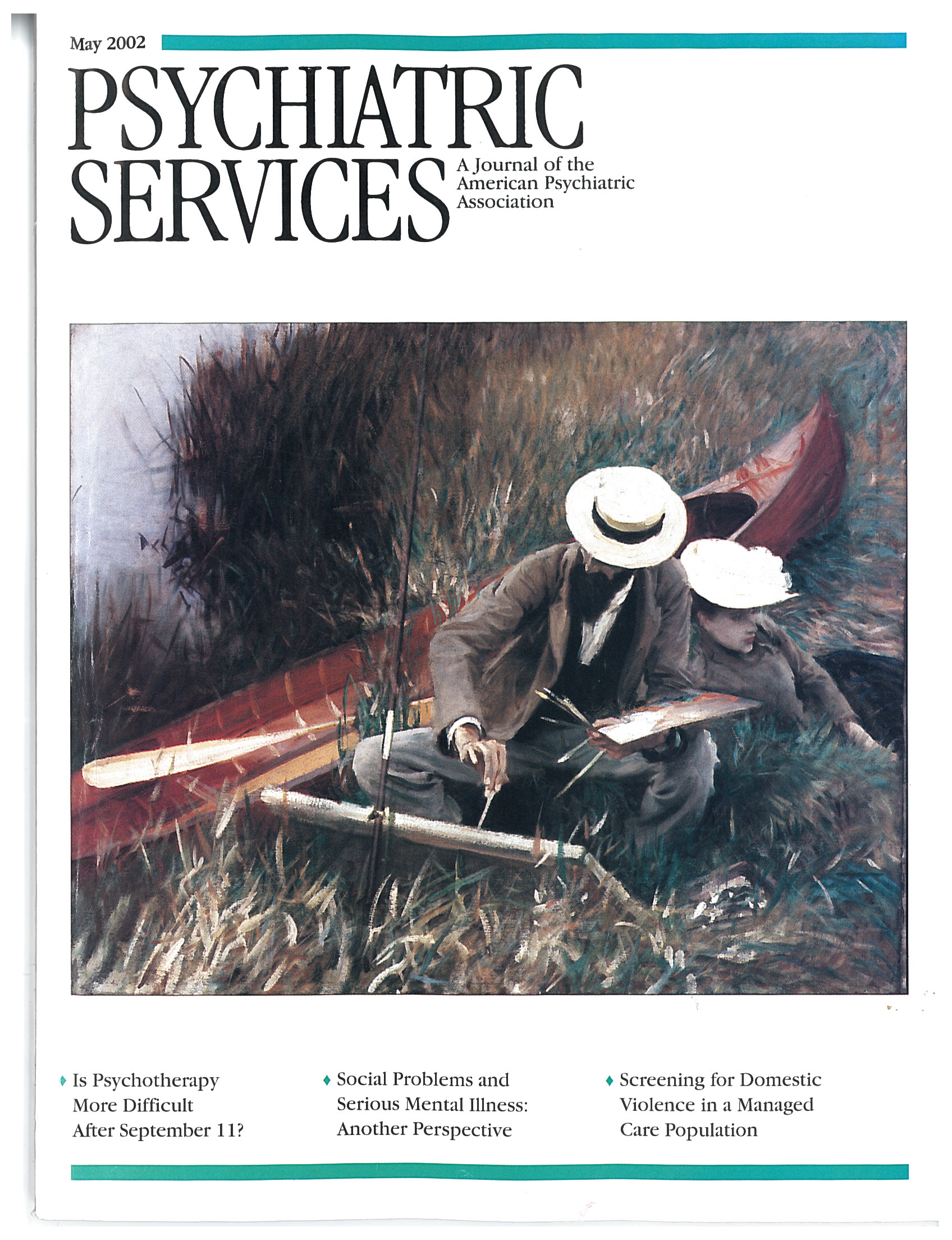Stigma as a Barrier to Recovery
To the Editor: The special section in the December 2001 issue devoted to research about stigma (1) is a must-read for mental health clinicians, program and policy planners, and trainees. In my work with therapy groups of severely ill patients who attend the partial hospital program at the Payne Whitney Clinic, I have been profoundly moved by the added burden that stigma imposes on the struggle to recover. Several topics arise in group discussions, including how to explain gaps in one's resume, how to obtain medical care without being labeled a "psychiatric patient," how to explain one's depression to family members who oppose the use of medications and insist that one is simply "not trying hard enough," how to manage side effects such as tremor and weight gain that are difficult to conceal, and how to cope with loneliness and isolation from the mainstream culture.
At the 1985 annual meeting of the American Psychiatric Association, Dr. Kenneth Turkelson presented a lecture on the "humiliation" of being mentally ill. Sadly, in 2002 this topic is still relevant. The national leadership provided by the Surgeon General to overcome stigma and improve access to treatment is long overdue. Archaic notions of mental illness persist. Advances in family treatment models have meant a shift away from former interventions in which parents experienced blame and analysis of their personalities toward appreciation of caregiver burden. Nevertheless, parents continue to struggle with shame and grief in a competitive society in which bragging about the accomplishments of one's offspring is commonplace (2,3).
The groundswell of understanding of mental health problems and appreciation for the invaluable role of treatment after September 11 cruelly evaporated soon afterward with the defeat of parity legislation. The failure of national leaders to endorse parity in coverage of psychiatric and physical illnesses highlights the fact that people with serious psychiatric illnesses face a more difficult battle than those with serious physical diseases. Stigma undermines the promise of state-of-the-art treatments that are now available to alleviate suffering and restore functioning. In addition, providing services for this population is especially difficult under managed care, in which treatment can be reduced to symptom management and patients can be deprived of longer-term psychotherapeutic and social supports (4,5).
We must continue to address underlying issues that cause stress for patients and their families and that can result only in a tougher journey and a poorer outcome.
Ms. Matorin is treatment coordinator for the affective disorder team at Payne Whitney Clinic of New York Presbyterian Hospital and the Weill Medical College of Cornell University in New York City. She is also adjunct associate professor at Columbia University School of Social Work.
1. Perlick D: Special section on stigma as a barrier to recovery: introduction. Psychiatric Services 52:1613-1614, 2001Link, Google Scholar
2. Solomon P, Draine J: Subjective burden among family members of mentally ill adults: relation to stress, coping, and adaptation. American Journal of Orthopsychiatry 65:419-427, 1995Crossref, Medline, Google Scholar
3. MacGregor P: Grief: the unrecognized parental response to mental illness in a child. Social Work 39:160-166, 1994Medline, Google Scholar
4. Kanwal G: Hope, respect, and flexibility in the psychotherapy of schizophrenia. Contemporary Psychoanalysis 33:133-150, 1997Crossref, Google Scholar
5. Fisher I: At the Cradle Café, therapy for the troubled mind. New York Times, Jan 16, 2002, p 4Google Scholar



